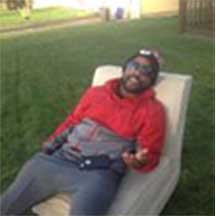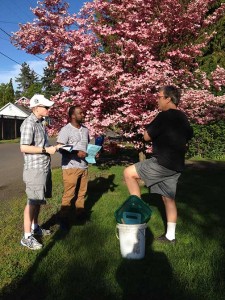 Recently, our Community Planning Workshop Team finished collecting upwards of 90 surveys as part of our project to evaluate Eugene’s rest stop policy and micro village programs. Over the span of two weeks, our group administered door-to-door surveys in the areas nearest the rest stops and micro village.
Recently, our Community Planning Workshop Team finished collecting upwards of 90 surveys as part of our project to evaluate Eugene’s rest stop policy and micro village programs. Over the span of two weeks, our group administered door-to-door surveys in the areas nearest the rest stops and micro village.
We decided that we would survey addresses, both businesses and residents, within a 500-foot radius of each rest stop and the micro village. The rationale for surveying local business and residents within a 500-foot radius is to capture the perceptions and perspectives most affected by these camps. Capturing these perspectives is important to the program evaluation process because these nearby business owners and residents were expected to be most impacted by the sites.
In addition to splitting ourselves into two groups, with each group consisting of two student members and a representative from the Eugene’s Humans Rights Commission, we split the addresses in two as well. In the instance that a business was closed or a representative wasn’t available to participate in the survey, we left a postcard that included a description of our project and survey, as well as the web address to the survey on-line. Postcards were also left at residences where no one was readily available to take the survey.
As a group, we dialogued about our experience facilitating surveys in the community. We all agreed that hitting the pavement and walking door-to door for several hours administering survey questions was a humbling experience because we were able to connect with community members in hopes to contribute positive change in their community. It was this process that demonstrated not only the value in accounting for community opinion and perspective, but this process also demonstrated the effort it takes to truly engage the community in a meaningful way.
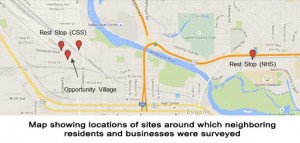 While there were individuals that expressed discontent, there were many more that were emphatic in their support for initiatives that provide safe, secure places for the unhoused to sleep. Generally, neighbors agreed with the facilitation of services like the rest-stops and micro villages, but feel as though the City could be doing more to accommodate Eugene’s unhoused population.
While there were individuals that expressed discontent, there were many more that were emphatic in their support for initiatives that provide safe, secure places for the unhoused to sleep. Generally, neighbors agreed with the facilitation of services like the rest-stops and micro villages, but feel as though the City could be doing more to accommodate Eugene’s unhoused population.
The process was taxing at times, but overall proved to be a rewarding and meaningful experience. Being able to share in the gathering and communication of neighbor feedback to decision makers is right at the intersection of community engagement and impact that pushed us to join this team.
About the Authors:
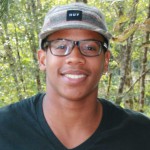 Jaleel Reed is a dual-Master’s student in Environmental Studies as well as Community and Regional Planning. An environmental scientist by degree from Northwestern University, he has re-oriented his interest toward environmental justice and community development. Outside of class, Jaleel doubles as a food and fitness enthusiast.
Jaleel Reed is a dual-Master’s student in Environmental Studies as well as Community and Regional Planning. An environmental scientist by degree from Northwestern University, he has re-oriented his interest toward environmental justice and community development. Outside of class, Jaleel doubles as a food and fitness enthusiast.
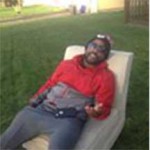 Brody Abbott received his Bachelors of Degree in Criminal Justice from Southern Oregon University in 2013. During his free time he enjoys playing with his dog, Rufus, playing basketball, and enjoying the great outdoors. Originally from Portland, Oregon, Brody is close to his friends and family.
Brody Abbott received his Bachelors of Degree in Criminal Justice from Southern Oregon University in 2013. During his free time he enjoys playing with his dog, Rufus, playing basketball, and enjoying the great outdoors. Originally from Portland, Oregon, Brody is close to his friends and family.


